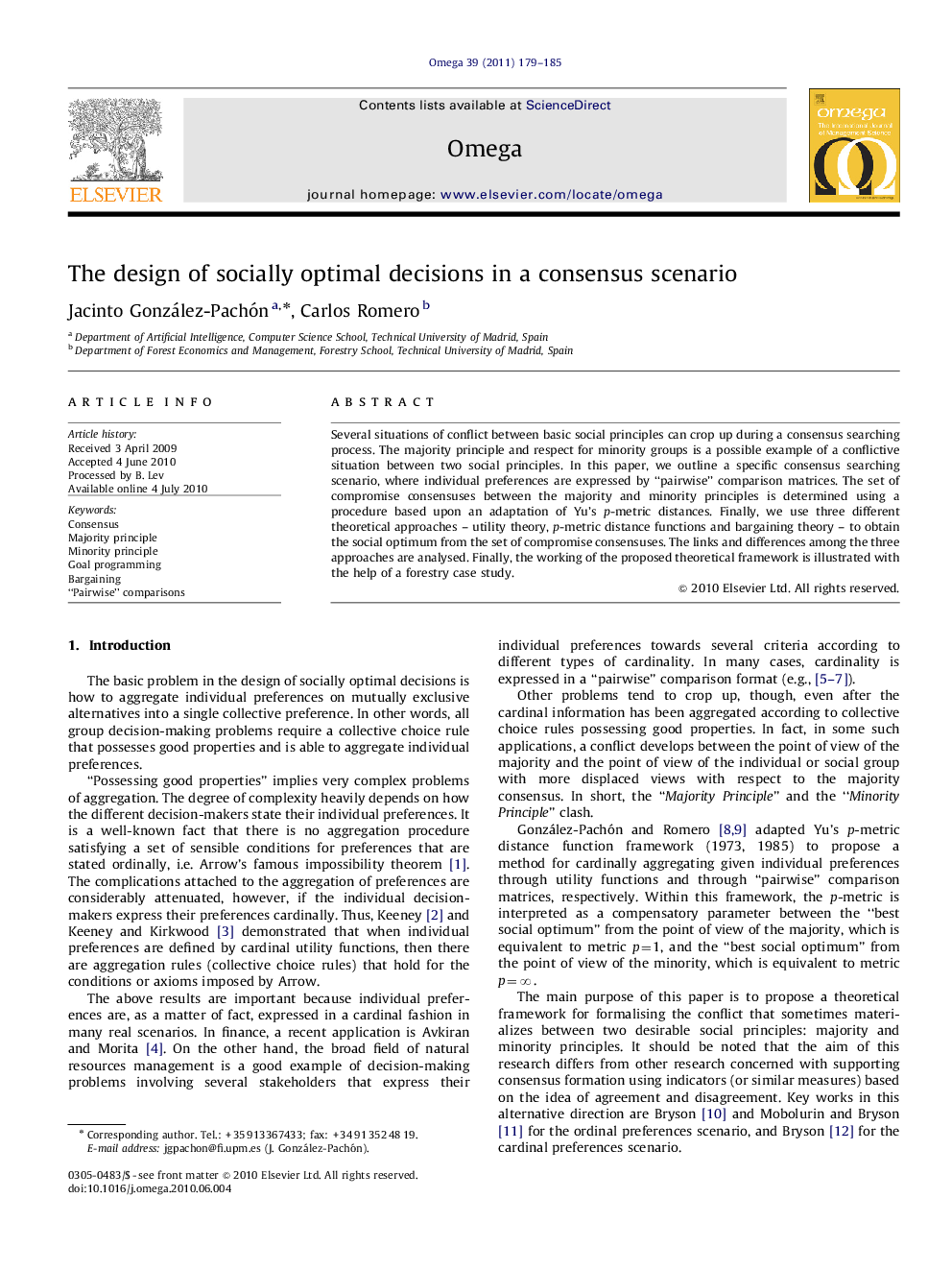| Article ID | Journal | Published Year | Pages | File Type |
|---|---|---|---|---|
| 1033169 | Omega | 2011 | 7 Pages |
Several situations of conflict between basic social principles can crop up during a consensus searching process. The majority principle and respect for minority groups is a possible example of a conflictive situation between two social principles. In this paper, we outline a specific consensus searching scenario, where individual preferences are expressed by “pairwise” comparison matrices. The set of compromise consensuses between the majority and minority principles is determined using a procedure based upon an adaptation of Yu's p-metric distances. Finally, we use three different theoretical approaches – utility theory, p-metric distance functions and bargaining theory – to obtain the social optimum from the set of compromise consensuses. The links and differences among the three approaches are analysed. Finally, the working of the proposed theoretical framework is illustrated with the help of a forestry case study.
